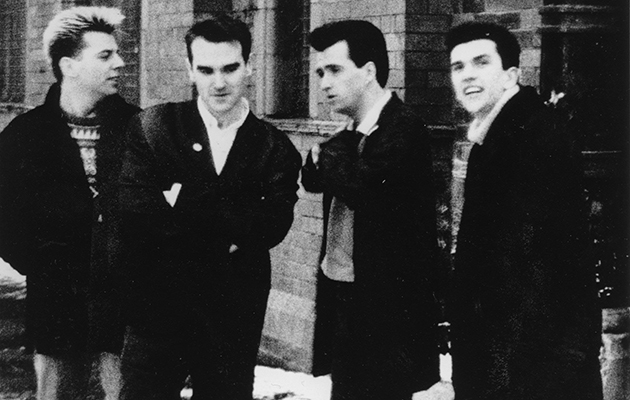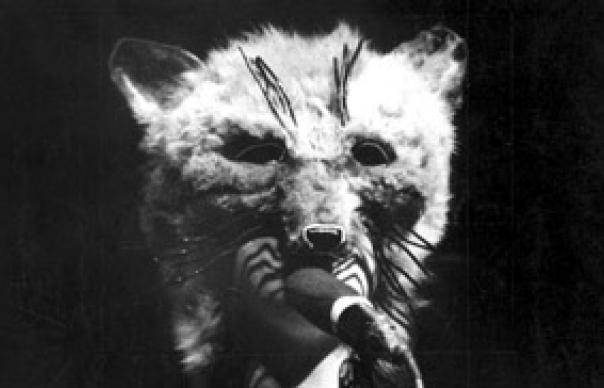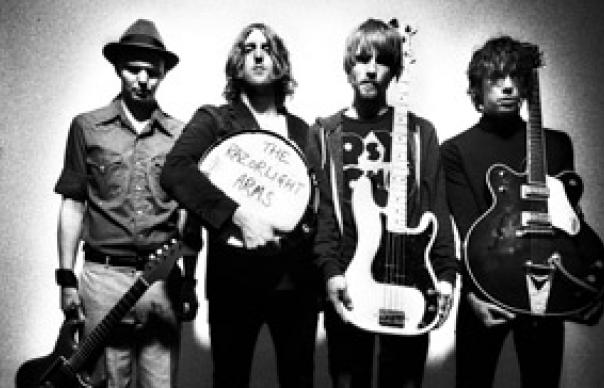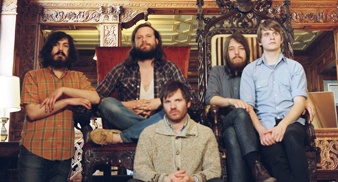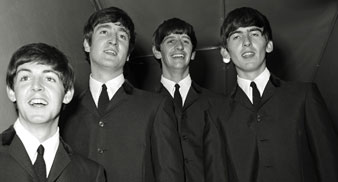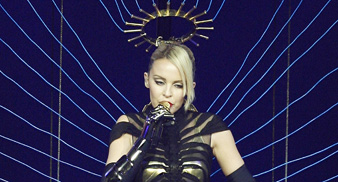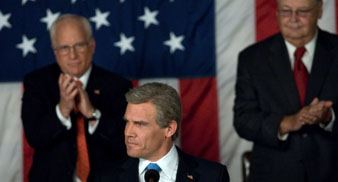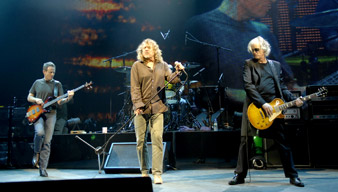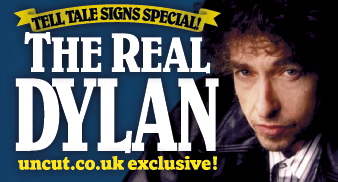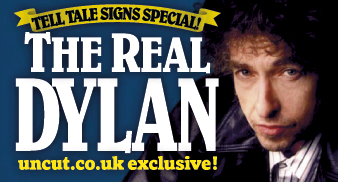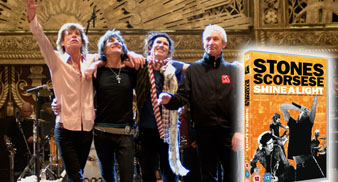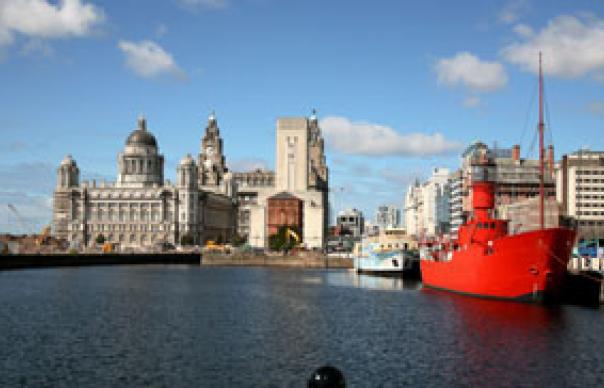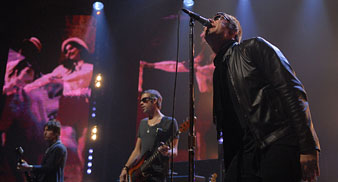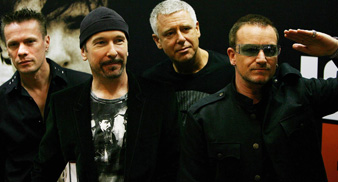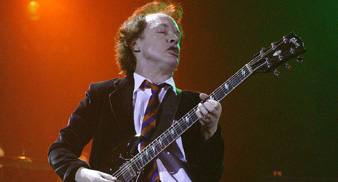BOB DYLAN SPECIAL: The Complete Tell Tale Signs
In the November issue of Uncut, we celebrated the release of Tell Tale Signs, the Bootleg Series Vol 8, Bob Dylan’s astonishing 2 and 3CD collection of unreleased material from 1989-2006.
By speaking to the musicians, producers and crew who worked with him during this period, we uncovered a fascinating insight into how Dylan has recorded in the studio.
Over the the month, we have published the full, unedited transcripts of those interviews, and now present the final installment.
So, today, we present part thirteen: Chris Shaw, longtime engineer for Dylan’s recording.
You can read the previous five transcripts by clicking on the side panel (right) and all 13 parts of our exclusive online series in the Uncut Special features archive by clicking here.
****
CHRIS SHAW
Dylan’s engineer of choice since the turn of the millennium. Previously worked with Booker T And The MGs and Jeff Buckley, but he got the gig with Dylan “when he heard I got my start doing Public Enemy records.”
The very first thing I did with Bob was the song “Things Have Changed”, off the Wonder Boys movie, which was the song that got him his Oscar. I just got a phone call randomly one afternoon about three days before the session, asking if I wanted to work with Bob. And the first thing I said wasn’t “Yes” – it was *“Why me?”
I was recommended for the job by Steve Berkowitz, the A&R guy at Sony Legacy Records, who handles all of Bob’s back-catalogue. I’d hooked up with Steve prior to that for some amazing session work, with people like Booker T & the MGs and Jeff Buckley. And, at first, Bob’s manager wasn’t too sure if he’d want to work with me, *because* I’d worked with Booker T and Jeff Buckley, he thought I might be like an old-school style engineer. But then he heard that I got my start doing Public Enemy records, and he got very interested. That was the reason I got the gig with Bob.
We did “Things Have Changed” in one afternoon, and when we were done we did a very quick mix of it, and I thought it was just going to be a rough mix to give to Bob who’d maybe give it to someone else, like Daniel Lanois, who’d wind up engineering and mixing the final thing. But it turned out that that rough mix ended up being the final mix. And that was pretty funny, because the very last thing Bob did was raise the shaker up like 10db, making it ridiculously loud, and that was the mix he wanted to go with. So, I’ve been his engineer since then, seven or eight years now. One other thing we were desperately trying to find for the new Bootleg Series record, actually, but we weren’t able to locate, was the outtakes for “Things Have Changed”. Because there are at least two other complete versions of that, and one that I distinctly remember that was really great, it had a kind of New Orleans shuffle to it. But we weren’t able to locate the masters in time. Hopefully, if that gets found, it might show up on the next Bootleg Series…
I’m not sure why Bob decided to start producing himself. I think, maybe, because of the success he had with “Things Have Changed”, which he produced himself, and we did a couple of other things between that and “Love And Theft”, and I think he just realised he could do it himself. I don’t think he every really thinks he needs a producer, but this was the was first time he had a chance to do it without a producer, and he just realised, “I can do this myself. I know what I want.” It’s funny, because I’ve met other engineers and producers who have worked with Bob, and I’ve heard stories about, y’know, how he can be difficult, and how he’s difficult to work with. And I’ve found it to be exactly the opposite. I don’t find it difficult to get along with him at all. The thing about Bob is that: he just knows exactly what he wants. And I think the people who have said that Bob is difficult are people who were trying to put what *they* wanted on the record – but that’s not what Bob wants. I heard stories about arguments between him and Daniel Lanois in the studio, and I think that’s basically what it comes down to: Daniel’s got his idea how it should sound, and Bob’s got his idea about how it should sound, and that’s where they butt heads.
On “Love And Theft”, Bob really wanted to get the live sound of the band he had at that time, which, in my opinion, is the best band he’s ever had. Charlie Sexton, Larry Campbell, David Kemper, Tony Garnier, and we had Augie Meyers in playing organ. His idea was just, basically, get the whole band in the room and get them playing. You can never, ever know or predict exactly what it is that Bob wants. We went into that record thinking that he was going to be playing guitar, and he had this whole concept about how he wanted to “sing into the corner.” Y’know, he wanted to face the corner of the room and sing into it, kind of like that Robert Johnson album cover. The word came down that he wanted to try and do something like that, so we spent a whole day, before he got there, creating this elaborate set-up in the studio for him to do that. We got the whole band set up and rehearsed and got some sounds going on. And so, Bob walks in the room while we’re running through a song, and he starts doing the whole singing into the corner thing – and within about, like, two minutes, he abandoned the whole idea and just wandered over to the piano and sat down at it, and I had a microphone sitting there just in case he wanted to record an idea, and he sat down at the piano, and never got off it for the rest of the session, except for two songs, “High Water” and “Poor Boy”, I think.
His songs kind of continuously evolve. They’re not static. For him, it’s all about getting the track to fit the words, and not the other way around. So that’s why there are so many bootlegs, six different versions of “Like A Rolling Stone”, four different versions of “Visions Of Johanna”, he’s always trying to find the arrangement that works best with the sentiment he’s trying to express. To that end, he might say, “Well, I’m kinda hearing this like this old Billie Holiday song.” And so we’ll start with that, the band will actually start playing that song, try to get that sound, and then he’ll go, “Okay, and this is how my song goes.” It’s a weird process, and it’s unique to him out of any of the bands I’ve worked with over the past 20 years. It’s always interesting, always unbelievably exciting, and it’s a lot of hard work – and I mean that in a very good way. His sessions are always challenging, but, at the end of the day, you always feel like you’ve got something done, and you’ve done the best to get the song to work.
For Bob, especially when he’s producing on his own, if he can’t get a song completely recorded in a day, he thinks there’s (A) Something wrong with the band, (B) Something wrong with the song or (C) Something wrong with me or the studio. “Love And Theft”, I think there’s twelve songs on that record, and we did twelve songs in twelve days, completed. Then we spent another ten days mixing it, and I think we mixed four of the songs in one day, in something like six hours. He decided at the last minute to change a couple of things.
It’s very nerve wracking when you’re working with Bob, especially as a mixer, and especially if he’s there, because you don’t get much time to mix the record. He really hates being in the studio, I think, on that part of the process. So you have to be on your toes. More time is spent getting the sounds right when we’re recording than in mixing. And I’d say about 85 per cent of the sound of that record is the band spilling into Bob’s microphone, because he’d sing live in the room with the band. Most of the time without headphones. That’s why the record has this big, think, almost kind of swampy sound to it, and he loves it, he really goes for that sound.
Part of the problem for me on that record was because he didn’t want to wear headphones. We were sitting there on the first day of mixing, and he said, “I wanna rerecord the second verse again, change a couple of lines.” And I said, “Okay, let me get a headphone mix together so you can have something to sing to.” And he’s like, “Nah, nah, I don’t like wearing headphones.” So I said, “Kay, well, let me get a pair of speakers rigged up and you can sing to the speakers.” And he goes, “Oh, I used to do that with Daniel, I dunno if I like doing that.” So what I wound up having to do was, we put the whole band back in the room with him, and *the band* would wear headphones, and then the band would play along with the track, and Bob would kind of look over at Charlie Sexton, and Charlie would be mouthing the words to the song so Bob would know where he was, and then Bob would sit there and start singing into the microphone, and the I’d just drop-in Bob’s new mic, onto the existing track. And the great thing was, all the spill from the “new” band would still be there, all this bleed, so a lot of times on that record, you’re actually hearing two bands playing on each track.
Bob is constantly changing it. He’ll be like, “What key are we in?” “Oh we’re in G.” “What tempo?” “85 bpm, Bob.” “Okay, well let’s do it in C-minor, and let’s crank up the tempo to 104, and, Charlie, I want you on electric instead of acoustic, Tony, I want you to play upright bass instead of electric, I’m gonna switch to guitar, oh, and I want you playing lap-steel.” And so, we’re like, “Ooookay…” And, as an engineer, you’re suddenly racing to get all these sounds on all these new instruments, while they’re rehearsing it, and Bob looks up and says, “Okay, let’s take.”
So you’ve got to be on the ball, and make sure you’re not missing anything he’s recording. Hence, when Jeff Rosen and I were going through the tapes for Time Out Of Mind for the new Tell Tale Signs, there were something 85 tapes we had to sort through looking for the specific songs we were looking for. You wind up with like 30 takes of a certain song or whaterver. There were only two takes of that song “Dreamin’ Of You”, that just got released on the website, we found that one pretty easy, but there were others that took forever to find, like “Red River Shore”, there were four versions of that that we had to go looking for. It’s an archival process, and it’s fun digging through that stuff, especially all the banter you hear between tracks and stuff.
For me, personally, I have really fond memories of recording that song on “Love And Theft”, “Moonlight.” It’s really gorgeous, and I think the take that’s on the record is the second take, the whole thing is completely live, vocals and all, not a single overdub, no editing, it all just flowed together at once, and it was a really beautiful moment. During that session, at the end of every night, I would do a quick rough mix of the songs that we had been working on so he could hear them. And the rough mix of “Moonlight” ended up being the final master. I took two more stabs at mixing it, and everytime, we would wind up going back to that rough mix, there’s just something about it.
But, the thing was, there’s a lyric on the song where Bob sings, “The leaves cast their shadows on the stones,” and, when he was singing it live, he was reading his lyrics off a piece of paper, and, I guess, for a split-second, he got dyslexic, because on the live take, he actually sang, “The leaves cast their *stadows* on the stones.” So, the only time I did any editing on that song, was when I heard this word “stadows” go by, I knew he meant shadows, because I had the lyric sheet in front of me. So, when I tried a remix, I took the vocal, and I found a “sh” from somewhere else, and I chopped the “st” out and put that in, so he was singing “shadows,” y’know. And Bob was listening to all these mixes, and he kept saying, “Nah, man, I really wanna use that rough mix.” Finally, I said, “Well, you know, on the rough mix, you don’t sing ‘shadows,’ you sing, ‘stadows.” And he took a long hit on his cigarette, and he kind of looked at me deadpan, and he went, “Well, you know:*‘stadows.’*” So, at the final mastering, we figured that we really couldn’t let that stadows go by, because everybody would give him shit about it, so we did sliver edit, literally just for the “sh,” like a 15 milisecond edit.
There aren’t really any outtakes from “Love And Theft”. There are a couple of alternate takes, a lot of outtakes, but they weren’t fully complete unfortunately, or maybe the vocal wasn’t up to par, because Bob was just kind of still going through it. Bob, often, wouldn’t really start truly singing until he felt the band was getting their groove together, he would just kind of mumble through a take and listen to them, and say, “Okay, that’s not really working, let’s try something else.” There was one outtake I was trying to get put on Tell Tale Signs, though, the very first take of “Lonesome Day Blues,” because, it might have been the first track we did, we had the whole band playing in the room, and there’s a moment when it’s the first time the band really got their groove together, and Bob was just starting to sing it, and as the song progresses, you can hear him getting really into and the band really getting into it, the song builds up.
But the thing was, the first two verses were just Bob not really singing, because he wasn’t sure if it was right yet. But by that third verse he starts singing, and by the fifth he’s just *really* leaning into it. I distinctly remember that moment, standing in the control room watching the band, everyone in the control room, the hair on the back of the neck was standing up, people are saying, “Oh my God, this sounds amazing.” When it came to whether or not to put it on the new record, though, we had to decide that, for the listener, because the first two verses aren’t really there, it’s just not a fully satisfying experience.
“Lonesome Day Blues” really set the mood for that whole record. “Love And Theft” was an amazingly fun record to do. I think Bob was just having a blast producing himself, and he had one of his best bands ever with him. And they laid down that groove so hard. There were ten of us in the control room, and we were all whooping and hollering the entire time that song was going down. It was the first time we had heard Bob really just lay into a vocal in ages. We were so excited about that. In the same way that, on Modern Times, we were really excited to have Bob playing harmonica again.
That was amazing – I remember sitting there thinking to myself, “Holy shit. I’m recording Bob Dylan *playing harmonica.* This is incredible.” I’m a jaded studio guy, y’know, I’ve been working in studios for twenty two years. But every day on those two albums, every day I work with the guy for like five minutes, I’ll be sitting behind that console, and I’ll have this voice in the back of my head: *Holy fucking shit. I’m recording Bob Dylan.* And all of a sudden the hair on my arm is standing up, and I’m looking around, waiting for someone to barge in and point at me and say, “He shouldn’t be here.” He’s a blast to work with, Bob. As serious as the guy is, he has an incredibly wicked sense of humour, and he’s actually a lot of fun in the studio. When he’s in a good mood, it’s phenomenal.
On “Love And Theft” and Modern Times, Bob would sometimes come in with reference tracks, old songs, saying, “I want the track to be like this.” So, like, on Modern Times, there’s the Muddy Waters track [“Trouble No More”] that eventually became “Someday Baby”. He’d come in and present these templates and use them as reference points. The songs were pretty much written before he came in, they weren’t jammed out, but it was a case of him trying to get the band to play them the way he heard it. And sometimes that meant going down all these detours, “Okay it’s not really working like this, let’s try it like this.”
Like on the new Bootleg Series record, there’s the slow version of “Someday Baby” on there, the kind of gospel one. That was just like, he was getting kind of frustrated with the “Muddy Waters” version not coming together, and, after dinner I think, he walked back into the room and George Receli, his drummer, was tapping out that groove, and Bob sat down at the piano, and all of a sudden they came up with *that* version. We really raced to record that, I think it was only done for one or two takes. I think the vocal is pretty much untouched, maybe just one or two lines he changed later. And I think the reason he abandoned *that* version was that he was still really stuck on the Muddy Waters version. And, also, because he may have thought it sounded a little too much like Time Out Of Mind.
Bob really, *really* hates to repeat himself. He just hates it. A lot of times on “Love & Theft”, he’d do a version of a song and he’d say, “Aww, I’ve *done* that already. We gotta figure out some other way of doing it.” That’s really what it’s all about with him. For him, it’s like the whole thing is like a big chunk of marble, and he’s just got to chisel away at it to find exactly what it is he’s looking for. He’s not 100 per cent sure to begin with – he knows he wants it to be a statue of some sort, but he’s not sure if it’s going to be a statue of a man or a woman or a child or a horse or whatever.
Modern Times took a little bit longer to record. By that point, Charlie Sexton had left the band and shortly after Larry Campbell had left, and, just in my opinion, they were such an incredible pair of guitar players for Bob to work with, and they left becuyase opportunities had presented themselves to them, y’know, like, Charlie became a producer in his own right, he had produced a Lucinda Williams record, and it was really good, and he was getting a lot offers to produce, and I think at one point he sat down and said to himself, “I can be in Bob’s band for the rest of my life, or I can strike out on my own.” And Charlie’s a young man, so he decided to go off an do it, and Larry Campbell left shortly after. So it took three new guitar players to replace the two that Bob had.
The sessions for Modern Times went a little slower, it took maybe a month rather than three weeks. Not for any real reason I can pinpoint. Bob had a lot of ideas to sort through, there were a lot of different versions of each song he had to settle on before he could decide where he wanted them to go, and I think he had this vision in his head that maybe he couldn’t quite articulate to the band as quickly, so it took a few times trying out ideas to get it to land where he wanted it to be. And I think there was a lot more lyric writing he had to deal with. Bob never has a shortage of ideas where song lyrics are concerned. That was something that always astounded me, especially on “Love And Theft”. He’d be like, “Oh, I wanna re-write the second verse. And he’d walk off, and ten minutes later come back, and say, “Okay, “ and he’d sing something and I’d be, like, “Jesus Christ, you just wrote that in ten minutes?” I know guys who have spent their whole lives trying to write a verse that good. I’ve worked with a lot of great artists, musicians and songwriters, but, man, when you walk in the studio with *that* guy, he’s operating on a completely different level. It’s really refreshing when. You have to work hard to make a record sound *bad* with him.
There was a lot of editing done on “Love And Theft”. Like, the song “High Water”, for example, the verse order of that was changed quite a few times, literally hacking the tape up. He was like, “Nah, maybe the third verse should come first. And maybe we should put *that* *there*.” There was a lot of that. But the really big breakthrough on Modern Times was that we didn’t do it on tape at all, it was the very first album he had ever done using ProTools. That whole record was done digitally, and so everything was preserved, we have hours and hours and hours of all the outtakes, because we left the machine running just 24 hours a day.
Actually, it wasn’t difficult to get him to go for using ProTools.
Between “Love And Theft” and Modern Times, we did a couple of things for movie soundtracks. There was “Cross the Green Mountain”, the song we did for Gods And Generals, and a couple of others, and, when we went into the studio for that, I said to Bob, “You know, since this is just a one-off song, it’s not going to be for an album, I wouldn’t mind trying ProTools, just so I can show you the benefits of it.” And he said, “Okay, whatever.” And we did a take of the song, and he was like, “Okay, I want to edit out the second verse and put the fourth verse in there.” And I said, “Okay, and by the time he walked into the control room from the studio, I had it done.” And his eyes just opened wide. “You can edit that fast on ProTools?” “Yeah.” “And you can keep everything?” “You can keep everything, Bob.” You could just see the gears in his head suddenly spinning.
The thing is, now, he’s gotten so used to the speed of that, when we were doing Modern Times, he was actually getting impatient with the machine. He’s be, like, “Okay, let’s swap the second and third verse.” And ten minutes later he’s like, “Are you done yet?” I’m like, “Bob, don’t you remember the last record we did, it took me about an hour to do that, can you give me somewhere between zero and an hour to get it done?”
But, working with Bob, that’s what unique, is everything is always live. He might edit the structure of a song, he might switch verses around because it tells the story better, but we never go in and do these micro-edits and tuning instruments or other computer tweaking that so many other people do: basically, to him, the computer is just one big tape machine. And that’s the reason Modern Times sounds so good: yeah, it was recorded using this new technology, ProTools, but we used an old desk, old microphones, old pre-amps.
The downside of using that stuff is, though – a couple of times during Modern Times, the computer crashed, in the middle of a take. And, I’ll tell you right now, there is no worse feeling in the world than having to walk out into a live room while the band is playing and have to stand in front of Bob and make him stop and tell him it’s because a computer has crashed. You feel about four inches tall. I mean it’s no one’s fault, it’s nothing anyone can control, but that …*irked* him a couple of times. I love working with Bob, it’s such an adventure, and he *always* keeps you on your toes, because you can never, ever, ever predict what he likes. Just when you think you know what he’s going to do, he doesn’t do it. He’s constantly evolving.
The word “chameleon” has been tossed around quite a bit, but he truly is, he just adapts to whatever is going on in the studio.
Bob has made me totally rethink the way I record a lot of other bands since, as far as getting the band to play live in the studio, doing minimal editing, getting away from the fucking computer. The biggest thing I’ve learned from him is the importance of the lyric and the vocal to a song – most bands you work with today, the lyrics and the sentiment are so disposable. And one of the things I find myself getting on bands’ backs about now is the essence of the vocal – you know, are the band actually paying attention to the vocal.
That’s the biggest memory I came away from “Love And Theft” with – whenever things were going wrong, it was almost always because the band weren’t listening to what Bob was saying. And “Love And Theft” is a great record because Bob doesn’t want *anything* getting in the way of a vocal. There should be no guitar riffs going on while he’s singing, no soloing while he’s singing, no fancy playing while he’s singing, and so, the great thing about “Love And Theft” is, there’s this tension in all the songs, because, all the other musicians are trying to get theirs in while he’s not singing, y’know. Whenever Bob stops singing, Charlie or Larry will try to put a little riff in there, or do a solo. If you go see Bob live, you’ll see these little times when he might turn to the guitarist and give him the eye, like, “You’re playing on top of me – don’t do that.” So, there’s kind of boxing match going on, and everyone’s trying to get their kicks in when Bob isn’t singing.
The studio, recording, for him is sort of like a necessary evil – I mean, he enjoys it, but he just hates the time it takes. He’s always talking about when he used to make albums: “This record, we did, like, four songs in one day.”
The thing about Bob is, on the last couple of albums, in the studio, he was always playing these old Carter family albums, old Bob Wills records, and one of the things he’s really enamoured with is the technology back then- you could only record with one or two microphones. You listen to a Carter Family record, that’s them just standing around one microphone. He would talk about how immediate it sounds, how raw and vital it sounds. And, you know, I said I’m really down with that, if he wants to try it, but the thing is, doing it that way, you can’t take anything away – you can add to it, but you can’t take anything out, so everything has to be right. So we’re always trying to get that sound with modern techniques. Which is always a struggle. And he understands it all, he’s not ignorant of modern technology. He just hates how records sound today. But he has said, “I really wanna try doing a record with a microphone.” So, who knows, we might be doing that on the next record, you never know. It might start that way…
But, for him, a recording is just a document of the song at that moment in time. My favourite Bob Dylan songs is probably, “It’s Alright Ma, I’m Only Bleeding”. Especially today, because I think the lyrics mean even more today than when he wrote it. And he has this really wicked way of playing it live now, it’s kind of raucous, and I saw him backstage once after the show, and I said, “Hey, I love the new version of ‘It’s Alright Ma…’ – but do you ever play it like the original recording?”
And he looked at me, and he said, “Well, y’know, a record is just a recording of what you were doing that day.
“You don’t wanna live the same day over and over again, now, do ya?”
DAMIEN LOVE


